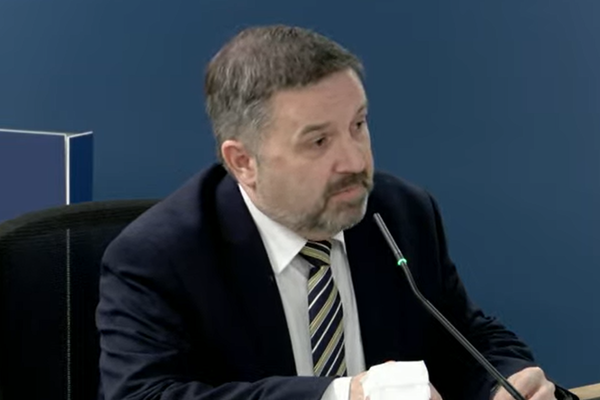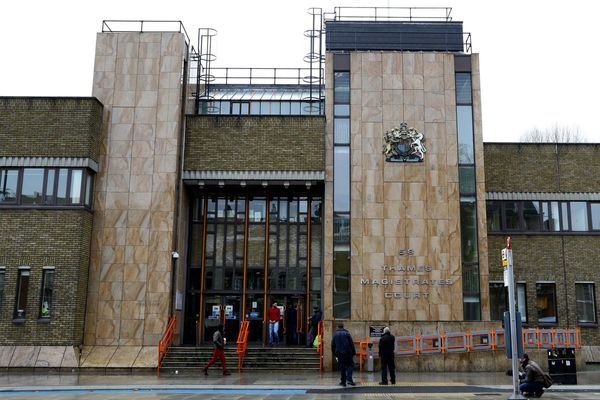
A botched software update from cybersecurity company CrowdStrike, which had a cascading effect on global IT systems, impacted airlines to such an extent that, five days later, passengers are still only now returning to destinations they’d been travelling to over the weekend. Crikey knows of at least one case where passengers due to fly last Friday will not return to Australia from the United States until Thursday.
This event should be the poster child for why Australia needs an airline passenger guarantee system — assuring compensation, refunds or rerouting by an airline in the case of delays or cancellation — in line with those operating in the European Union, the US, Canada and elsewhere.
In Australia, Jetstar was the most affected airline — it cancelled about 150 flights, the company told Crikey. Virgin also cancelled six flights, with most airlines seeing substantial delays, except Rex, which remained unaffected. Jetstar was hit from multiple angles, company sources said, with its check-in and baggage systems as well as its internal staff and customer communications systems all affected by the software update failure.
A hallmark of low-cost airlines has been the deployment of multiple “best of breed” — but also lowest cost — IT systems, with the downside now apparent. One of Jetstar’s key cost advantages has been its ultra-lean information technology model, which depends on a strong outsourcing strategy for its IT operations. From the outset, Jetstar has maintained a relatively small internal IT team to oversee its overall technology strategy and to manage relationships with dozens of external IT providers.
The line from companies, including those in the airline industry, is that this approach allows them to focus on “core competencies” while leveraging external expertise for specialised IT services. That is, until there is a major technology glitch, especially one that can affect multiple systems.
It’s a salutary lesson about the relentless cost-cutting and automation that has swept the global aviation industry. In many ways, it’s a complete reversal of the traditional airline model, where the airline sector pioneered massive integrated technology systems. For evidence, look no further than the relatively unaffected Qantas and the hard-hit low-cost Jetstar.
Still, Jetstar’s response appears better than the horror stories that abounded during the COVID pandemic. Following the CrowdStrike issue, customers affected by cancellations have been offered additional flexibility, including the option of free flight moves up to 14 days or a voucher refund. And as of yesterday, the majority of passengers impacted by domestic and international flight cancellations have now been moved onto other Jetstar and Qantas flights or offered a full refund, Jetstar said.
However, during the height of the crisis, Jetstar’s online customer service — its main point of contact — was unavailable. This technology-centred crisis will hardly be the last to affect one or all of Australia’s airlines. At the same time, it’s unlikely to halt the replacement of people with machines as airlines chase more profit and higher margins.
In Australia, passengers have no specific protections, service guarantees or automatic rights for cancellations, delays, changes or baggage delays. We need to move quickly to a passenger compensation guarantee system which offers compensation for a range of events, and extend to any airlines operating in Australian airspace.
Customer protections are currently being pushed in Austraila by a diverse range of interests, including consumer advocates, unions, the federal opposition and crossbench senators. Four years ago, consumer group CHOICE noted that “Australia lags behind the rest of the world when it comes to compensating passengers.” Since then, nothing has changed.
The Albanese government’s aviation green paper last year canvassed several possible options, including: expanding the role of the presently toothless Airline Customer Advocate; creating a new, more powerful ombudsman to handle passenger complaints and enforce rights; a possible passenger bill of rights, which would be similar to models in other countries; and improved consumer protection via changes to existing consumer protection laws to better address aviation-specific issues.
The subsequent white paper, expected to be published soon, will be a major test of the government — which is currently comfortable being duchessed with exclusive lounges and associated perks from Qantas and Virgin.
There is an easy political win here for a government that needs a few. The question is: does it have the wit, or guts, to take it?
Should the government back a passenger protection scheme? Let us know your thoughts by writing to letters@crikey.com.au. Please include your full name to be considered for publication. We reserve the right to edit for length and clarity.







